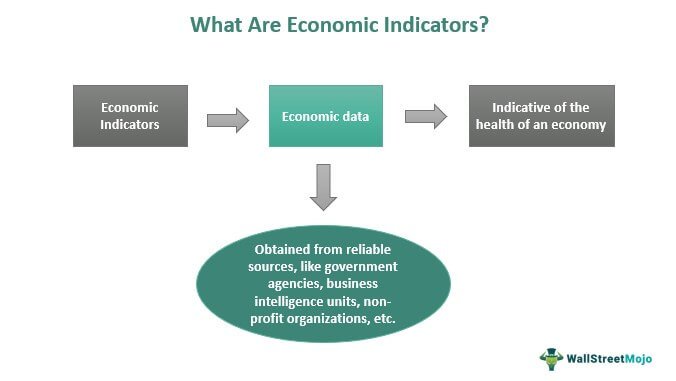Financial planning plays a crucial role in retirement. It ensures that individuals can confidently navigate this phase of life, secure their financial future, and fulfill their dreams. But what exactly is the role of financial planning in retirement? It’s about creating a well-thought-out strategy that considers income, expenses, investments, and savings. By developing a comprehensive plan, individuals can determine how much money they need, establish a budget, and make informed decisions about when to retire and how to sustain their desired lifestyle. In this blog article, we will explore the importance of financial planning in retirement and provide practical tips to help you achieve financial security in your golden years. So, let’s dive right in!
What is the Role of Financial Planning in Retirement?
Retirement is a significant milestone in one’s life that requires careful financial planning. After years of hard work and saving, it’s essential to have a solid financial plan in place to ensure a comfortable and stress-free retirement. Financial planning in retirement involves analyzing your financial situation, setting realistic goals, and developing strategies to achieve those goals. This article will explore the various aspects of financial planning in retirement, including budgeting, investment strategies, healthcare costs, and estate planning.
The Importance of Budgeting in Retirement
One of the key components of financial planning in retirement is budgeting. As you transition from a regular income to relying on savings and investments, having a detailed budget becomes crucial. Here are some important points to consider when budgeting for retirement:
1. Assess your expenses: Take stock of your current expenses and determine how they may change in retirement. Consider factors such as housing costs, transportation, healthcare expenses, and leisure activities.
2. Estimate your income: Calculate your expected income from various sources, such as Social Security, pensions, annuities, and investment returns. This will give you a clear picture of how much money you have available to cover your expenses.
3. Identify discretionary and non-discretionary expenses: Differentiate between essential expenses (e.g., housing, food, healthcare) and discretionary expenses (e.g., vacations, dining out). This will help you prioritize your spending and make necessary adjustments to fit within your budget.
4. Consider inflation: Factor in the impact of inflation on your expenses. Prices tend to rise over time, so it’s important to account for this when estimating your future costs.
By creating a realistic budget, you can ensure that your retirement income covers your expenses while allowing for savings and unexpected expenses.
Investment Strategies for a Secure Retirement
Investing is a crucial element of financial planning in retirement. While it’s common to shift towards a more conservative investment approach as you get closer to retirement, it’s important to strike a balance between risk and return. Here are some investment strategies to consider:
1. Diversify your portfolio: Spread your investments across different asset classes, such as stocks, bonds, and real estate. Diversification can help reduce the overall risk and maximize potential returns.
2. Consider your risk tolerance: Assess your comfort level with risk and align your investment strategy accordingly. Conservative investors may opt for more stable, income-focused investments, while those with higher risk tolerance might explore growth-oriented options.
3. Regularly review your portfolio: As you move through retirement, it’s essential to review and rebalance your investment portfolio periodically. This ensures that your investments align with your changing financial needs and goals.
4. Consult with a financial advisor: Seeking professional advice from a certified financial planner can provide valuable insights and help you make informed investment decisions that align with your retirement goals.
Addressing Healthcare Costs in Retirement
Healthcare expenses can be a significant financial burden during retirement. To ensure you’re adequately prepared, it’s crucial to factor healthcare costs into your financial plan. Here’s what you should consider:
1. Research healthcare options: Familiarize yourself with Medicare and understand the coverage it provides. Consider whether supplemental insurance or long-term care insurance is necessary to fill potential coverage gaps.
2. Budget for healthcare: Estimate your healthcare expenses, including premiums, deductibles, co-pays, prescription drugs, and potential long-term care costs. Include these costs in your retirement budget to avoid any financial surprises.
3. Consider tax-advantaged healthcare accounts: Exploring options like Health Savings Accounts (HSAs) or Flexible Spending Accounts (FSAs) can help you save pre-tax dollars specifically for healthcare expenses.
4. Stay healthy: Investing in your health through preventative measures, exercise, and a healthy lifestyle can potentially help reduce healthcare costs in the long run.
By proactively addressing healthcare costs in your financial plan, you can better protect your retirement savings and ensure access to quality healthcare as you age.
Estate Planning for Peace of Mind
Estate planning is an essential part of financial planning in retirement. It involves making arrangements for the transfer of your assets upon your passing. Here are some key considerations for estate planning:
1. Create or update your will: A will is a legal document that outlines your wishes for the distribution of your assets after death. Review and update your will regularly, ensuring it reflects your current wishes and includes any new assets or changes in circumstances.
2. Establish a power of attorney: Designate someone to handle your financial and legal matters in the event you become incapacitated. This ensures that your affairs are managed according to your wishes.
3. Consider a trust: Depending on your specific circumstances, establishing a trust can help protect your assets, minimize estate taxes, and ensure a smoother transfer of wealth to your beneficiaries.
4. Review beneficiary designations: Regularly review and update the beneficiaries listed on your retirement accounts, life insurance policies, and other assets that allow for beneficiary designations. This ensures that your assets are distributed as intended.
Estate planning provides peace of mind, ensuring that your assets are protected and your loved ones are taken care of according to your wishes.
In conclusion, financial planning plays a vital role in retirement. By creating a comprehensive budget, developing sound investment strategies, addressing healthcare costs, and engaging in thoughtful estate planning, you can enjoy a fulfilling retirement with financial security. Seek professional advice when needed and regularly review and adjust your financial plan to stay on track towards your retirement goals. Start planning early, and take control of your financial future today!
Why Retirement Planning is important?
Frequently Asked Questions
Frequently Asked Questions (FAQs)
What is the importance of financial planning in retirement?
Financial planning plays a crucial role in retirement as it helps individuals ensure a secure and comfortable future. It involves analyzing one’s financial resources, setting goals, and creating a comprehensive plan to manage income, expenses, investments, and savings during retirement years.
How does financial planning contribute to a successful retirement?
Financial planning contributes to a successful retirement by providing a roadmap for individuals to achieve their desired lifestyle and financial security. It helps in estimating retirement expenses, determining the required savings and investments, and managing risks such as inflation, healthcare costs, and unexpected events.
Can I rely solely on my pension or social security for retirement?
While pension and social security provide a foundation for retirement income, relying solely on them may not be sufficient for most individuals. Financial planning helps individuals evaluate their projected income from these sources and identify additional strategies to bridge the income gap and meet their lifestyle goals.
What are the benefits of early retirement financial planning?
Early retirement financial planning offers several benefits, including increased time for savings and investments, a longer timeframe for wealth accumulation, and the ability to address potential financial risks early on. By starting early, individuals can maximize their retirement savings potential and adjust their plan as needed.
How does financial planning help in managing retirement income?
Financial planning helps in managing retirement income by creating a budget and distribution strategy that aligns with an individual’s goals and needs. It involves evaluating various income sources such as pensions, investments, annuities, and social security, and determining the most tax-efficient and sustainable withdrawal approach.
What role does investment planning play in retirement?
Investment planning is a crucial aspect of retirement financial planning. It involves selecting appropriate investment vehicles based on an individual’s risk tolerance, time horizon, and income needs. Proper allocation of assets and diversification can help grow savings and provide a sustainable income stream during retirement.
What strategies can financial planning offer to minimize taxes during retirement?
Financial planning offers several strategies to minimize taxes during retirement. These may include utilizing tax-efficient investment vehicles, timing distributions from retirement accounts, considering Roth conversions, taking advantage of tax deductions and credits, and coordinating with other income sources to optimize tax brackets.
How can financial planning address healthcare costs in retirement?
Financial planning addresses healthcare costs in retirement by accounting for expenses such as insurance premiums, Medicare coverage, long-term care, and potential medical emergencies. It helps individuals evaluate the adequacy of their health insurance coverage and explore options like Health Savings Accounts (HSAs) to cover expenses tax-efficiently.
What role does estate planning play in retirement financial planning?
Estate planning is an essential component of retirement financial planning. It involves creating a plan for the distribution of assets, minimizing estate taxes, and establishing healthcare directives and powers of attorney. By addressing these aspects, individuals can ensure their legacy and protect their loved ones’ financial well-being.
Final Thoughts
Financial planning plays a vital role in retirement by ensuring a secure and comfortable future. It involves setting clear financial goals, creating a retirement savings plan, and regularly reviewing and adjusting the plan as necessary. Through effective financial planning, individuals can determine how much they need to save, invest, or allocate towards retirement. It helps identify potential risks, such as inflation or healthcare costs, and provides strategies to mitigate them. Moreover, financial planning enables individuals to make informed decisions about their investments and make the most of retirement income sources like pensions, Social Security, and personal savings. In essence, the role of financial planning in retirement is to provide a roadmap for achieving financial independence and peace of mind.



